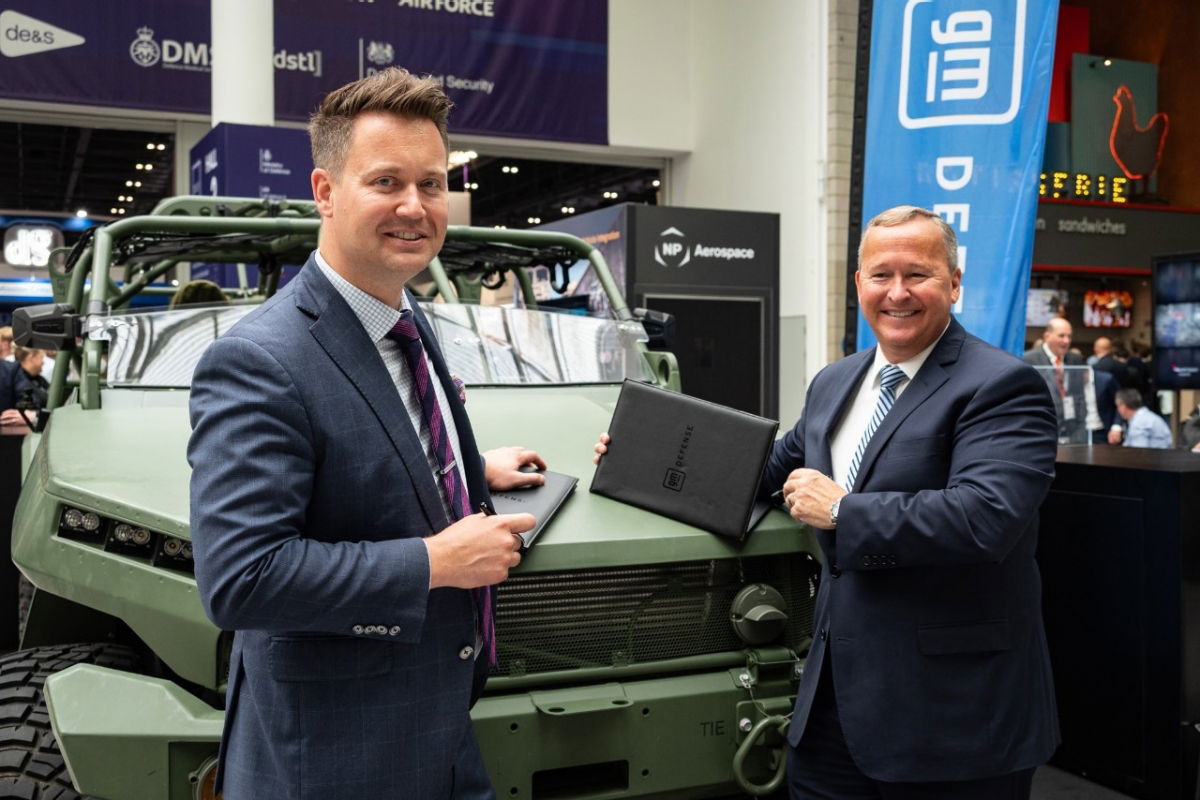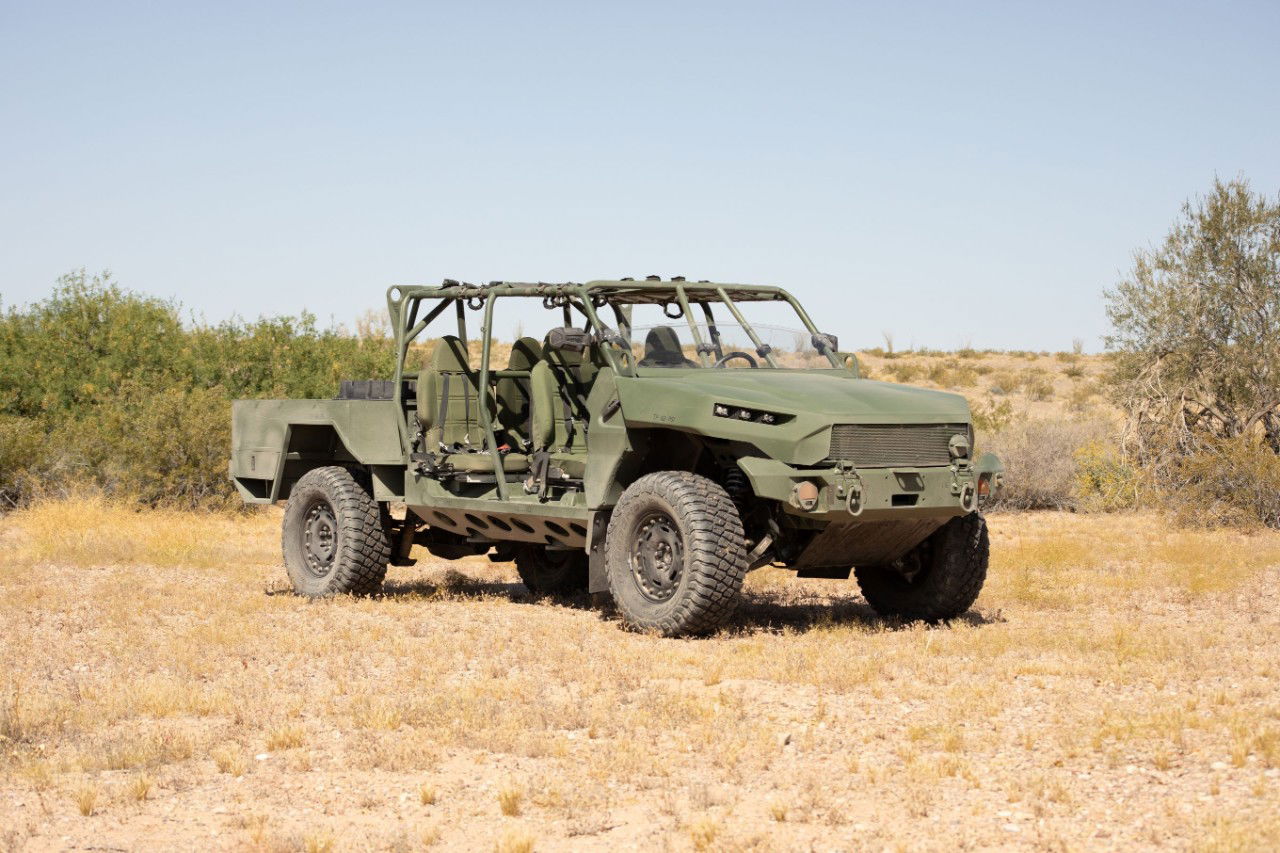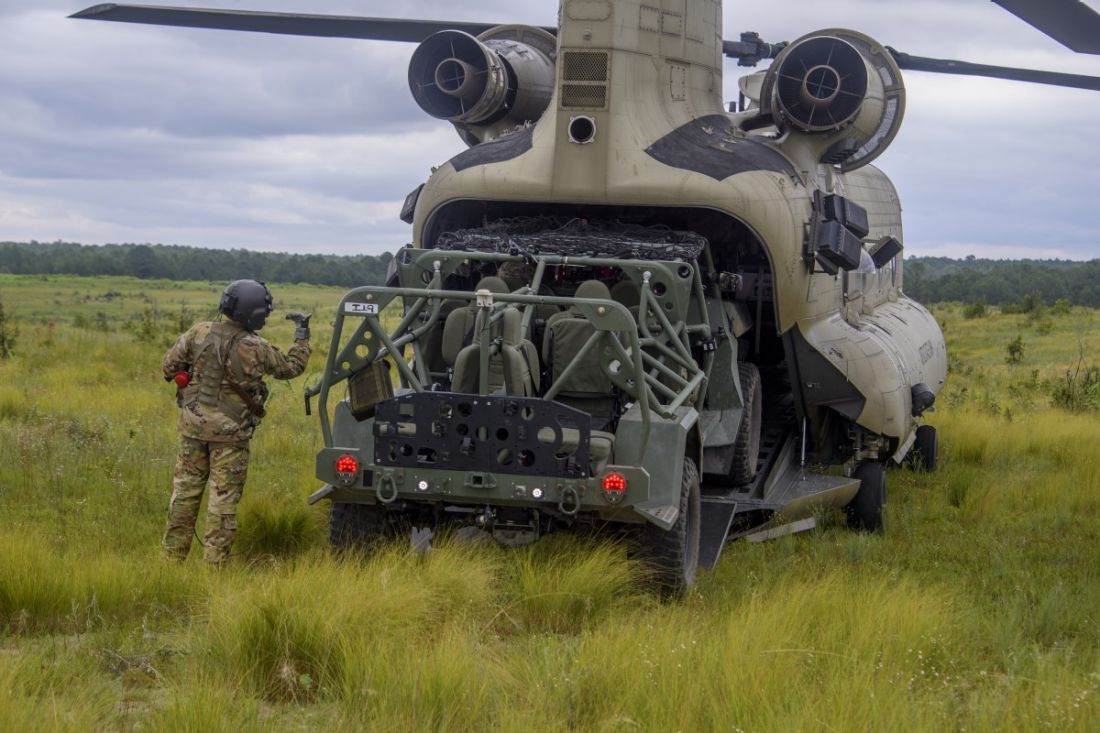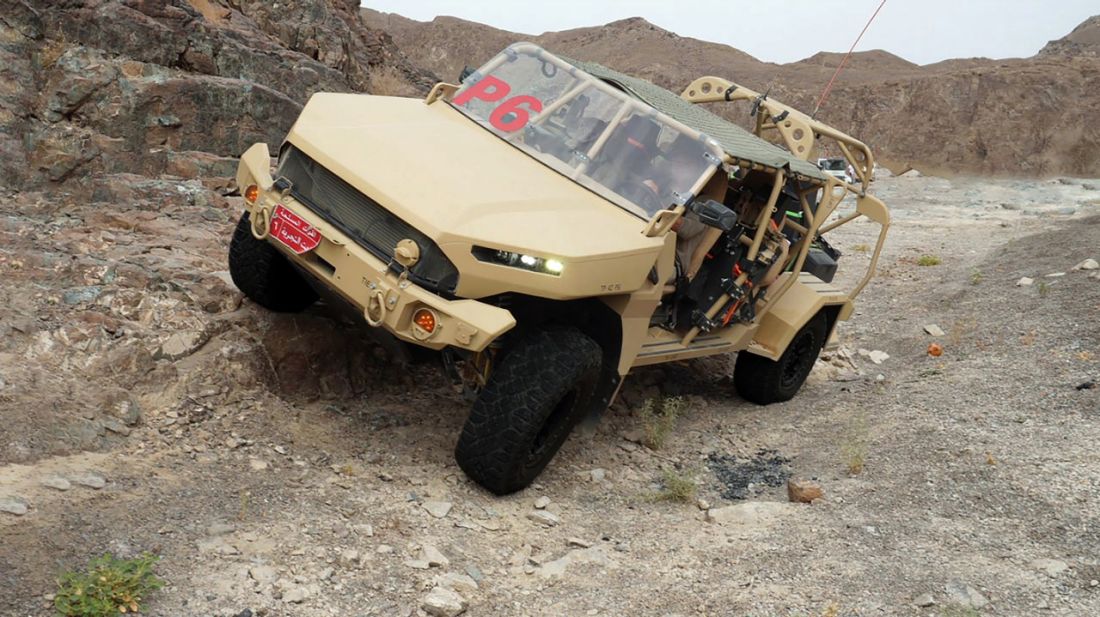GM Quietly Eyes Defense Sector Expansion In Post-Brexit UK To Cement Global Military Presence
In a recent announcement that initially seemed like another typical partnership in the defense sector, General Motors (GM) and NP Aerospace revealed plans to collaborate on tackling UK and NATO defense opportunities. The formal announcement, released in June 2025, marks the next chapter in GM's quiet but strategic pivot toward becoming a significant player in the global defense industry.
On the surface, the partnership appears to focus on providing military mobility solutions, but dig deeper, and a much larger, more ambitious goal emerges: GM is positioning itself to solidify a global defense footprint, leveraging geopolitical shifts and regional industry dynamics to cement its place in the rapidly evolving military sector.
GM Defense: From Car Company To Global Defense Powerhouse

For decades, GM has been synonymous with mass-market vehicles, from sedans to trucks and SUVs. However, as the company continues its transformation under its electric vehicle (EV) and autonomous technology initiatives, GM is expanding its reach far beyond the automotive industry.
With this partnership, the company’s vision is becoming clear: GM seeks to diversify its portfolio into defense technologies, possibly joining the ranks of companies like Lockheed Martin, Northrop Grumman, and BAE Systems — with the added advantage of a pre-existing global manufacturing and engineering network.
By working with NP Aerospace, a UK-based company with strong ties to the UK Ministry of Defence and NATO, GM Defense is tapping into an established defense infrastructure that will provide access to long-term, stable defense contracts in Europe and NATO territories.
The strategic importance of this partnership extends beyond military mobility solutions, presenting GM with highly lucrative revenue streams in defense, an area of immense growth and urgency as global geopolitical tensions continue to escalate.
The Geopolitical Context: A UK Military Power Post-Brexit

While the partnership between GM Defense and NP Aerospace may seem like just another corporate alliance, it’s important to consider the political landscape that has shaped this decision.
The United Kingdom, post-Brexit, has been navigating its newfound independence within Europe and its shifting role within NATO. With Brexit’s economic disruptions and the UK’s quest for strategic self-reliance, the country’s defense policy has come into sharper focus, emphasizing local manufacturing, defense innovation, and European market integration.
In this context, GM’s partnership with a UK defense supplier could be seen as a calculated move to tap into the defense procurement pipelines that the UK is eager to bolster.
The UK government is already investing heavily in defense, aiming to increase military spending and enhance capabilities across several key areas, including mobility, communications, and autonomous systems.
The GM-NP Aerospace partnership positions GM to take advantage of these investments, particularly in the electrification and automation of military vehicles, sectors where GM has a significant technological edge through its Cruise autonomous platform and advanced EV technologies.
As global defense spending surges, particularly across NATO members, GM could soon find itself at the heart of an increasingly profitable market.
The UK and NATO, seeking to diversify their military supply chains post-Brexit, may view GM’s involvement as a key asset to modernizing and securing their fleets for future challenges. This growing demand for sophisticated, adaptable military technology—including electric and autonomous systems—underscores the strategic significance of GM’s move into this space.
Expanding Beyond Automobiles: GM’s Cross-Industry Evolution

The defense sector provides GM with a unique opportunity to transcend its traditional role as a carmaker.
As the automotive industry undergoes rapid transformations driven by the rise of EVs and autonomous vehicles, GM has diversified its focus to include military-grade technologies such as electric, hybrid, and autonomous systems capable of meeting the needs of modern armed forces.
Autonomous military mobility is the future of defense.
A key part of GM's strategy lies in its growing focus on autonomous vehicle technology. With the advent of self-driving technology, GM sees significant crossover potential between its civilian technology, such as Cruise, and military applications.
Autonomous vehicles have the potential to revolutionize military logistics, personnel transport, and combat operations, providing increased efficiency and safety for personnel while reducing the risks involved in high-stakes military operations.
The GM-NP Aerospace partnership brings this vision into sharper focus. While the official language of the announcement focuses on military mobility solutions, it’s reasonable to believe that autonomous and electric vehicle platforms will play a critical role in the development of these military solutions.
As military forces look to reduce their reliance on traditional combustion engines and incorporate greener, more sustainable technology, GM’s existing capabilities in electric propulsion and autonomous driving could provide the edge needed to secure significant defense contracts.
The prospect of electric military vehicles isn't just about environmental concerns; it’s about operational efficiency.
Electric drivetrains offer superior torque, reliability, and energy efficiency in off-road and rugged terrains. For military operations, these attributes are crucial. GM’s established EV expertise positions it well to capitalize on this trend, potentially becoming the go-to supplier for advanced military mobility systems.
Local Manufacturing And International Strategy: A Strategic Play

While GM’s defense ambitions are global, this partnership highlights a key regional advantage: local manufacturing. By partnering with NP Aerospace, GM can gain access to UK and EU markets in a way that satisfies both domestic content requirements and the region’s growing demand for defense technologies.
This partnership also allows GM to bypass potential political or trade barriers that could hinder access to defense contracts in the future. The UK’s defense strategy, following Brexit, prioritizes domestic and EU-based partnerships, and GM’s collaboration with NP Aerospace positions the company as a critical player in the UK defense sector.
This industrial strategy could prove especially valuable as defense contracts are increasingly subject to domestic and regional content requirements. By utilizing NP Aerospace’s established manufacturing facilities and relationships within the UK, GM can ensure that its defense products are compliant with these requirements, enhancing the likelihood of securing high-value contracts in the future.
AUKUS And The Global Strategic Perspective
While the partnership itself is rooted in NATO and UK defense needs, there are broader, more global implications.

The AUKUS defense pact, a trilateral security agreement between Australia, the United Kingdom, and the United States, has already set the stage for closer defense cooperation across the Indo-Pacific region.
With increasing attention being paid to the military capabilities of China and other regional threats, defense partnerships between NATO countries and the United States are becoming more essential than ever.
In this context, GM’s expanding defense footprint could open doors to collaboration under the AUKUS pact.
While it’s not immediately clear how the GM-NP Aerospace partnership might intersect with AUKUS initiatives, GM’s technological expertise in autonomous systems and electric vehicles makes it a potential key supplier for AUKUS defense needs, particularly in areas such as logistics, transport, and autonomous military applications.
The development of autonomous naval vessels, military transports, and long-range drones—sectors in which GM has already demonstrated expertise—could see the company play an integral role in the future of AUKUS military operations.
GM’s role in these initiatives would not just be limited to supplying vehicles but could extend to integrating cutting-edge tech into the very fabric of AUKUS’s strategic ambitions.
A Quiet Ambition To Dominate Global Defense

As General Motors embarks on its journey to become a global defense technology provider, its partnership with NP Aerospace is a crucial first step in what promises to be a multi-faceted expansion into the defense sector. This strategic shift signals that GM, once primarily known for its cars and trucks, is evolving into a powerhouse that could reshape military mobility solutions for NATO, the UK, and beyond.
Through this partnership, GM is making it clear that it’s no longer just a carmaker. It is now a key player in the global defense landscape, positioning itself to provide innovative, sustainable, and autonomous technologies to the military sector.
As geopolitical tensions rise and the demand for advanced defense technologies grows, GM’s move into the defense market may well turn out to be a strategic masterstroke—securing not just contracts, but a lasting global military presence.